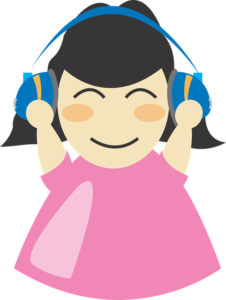The Case for Audiobooks
Written by Taylor Quinn
Published on August 17, 2016
Some people will argue that listening to a book does not have the same benefits as reading it yourself. That is true, but just because it does not have the same benefits does not mean it is any less effective.
A popular model of reading is called “The Simple View (Gough & Tumner)” which says that there are two fundamental processes contributing to reading:
- decoding
- language processing
“Decoding” refers to figuring out words from print, but “language processing” refers to the same mental processes you use for oral language. They are both equally important, and language processing is worked on when listening to a book.
Audiobooks are especially useful for children with dyslexia. When reading is not their favorite thing to do, the next best tactic is to subject them to as many words as possible audibly. They may not be able to decode words as well on the page but they will be able to use them in their everyday conversation.
Another reason why audiobooks are good for children with reading disabilities is that usually, they have superior oral comprehension and high vocabulary. Audiobooks will expose them to complex words, storylines, and concepts that they otherwise would sacrifice by only reading books at their reading level.
Audiobooks will allow children to have a positive relationship with storytelling. They will gather all of the same information without all of the frustration. Listening to audiobooks is not cheating.
You can become a subscriber to audiobooks through one of our partners, Learning Ally.
If your child has trouble with reading skills, visit our website to learn more about what we can do to help.
Improve Your Child’s Reading
Learn more about Lexercise today.
Schedule a FREE
15-minute consultation

